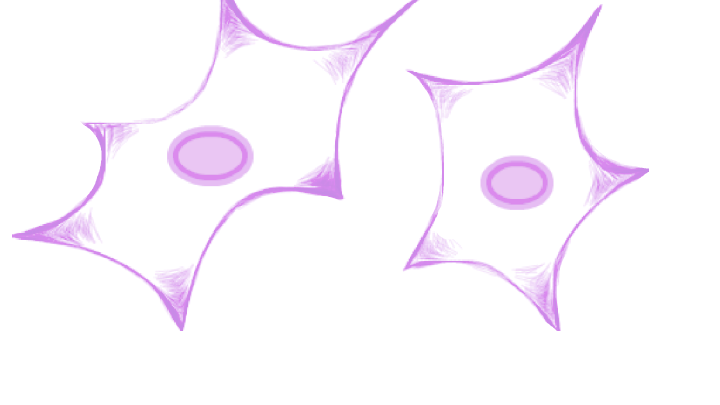Cell Senescence Entries for CHEK1
- Cell Types
- Colon cancer
- Cell Lines
- HCT116
- Cancer Cell?
- Yes
- Method
- Knockout
- Type of senescence
- Stress-induced
- Senescence Effect
- Induces
- Primary Reference
- Poehlmann et al. (2011) Cutting edge: Chk1 directs senescence and mitotic catastrophe in recovery from G₂ checkpoint arrest. J Cell Mol Med 15(7)1528-41 (PubMed)
CHEK1 Gene Information
- HGNC symbol
- CHEK1
- Aliases
- CHK1
- Common name
- checkpoint kinase 1
- Entrez Id
- 1111
- Description
- The protein encoded by this gene belongs to the Ser/Thr protein kinase family. It is required for checkpoint mediated cell cycle arrest in response to DNA damage or the presence of unreplicated DNA. This protein acts to integrate signals from ATM and ATR, two cell cycle proteins involved in DNA damage responses, that also associate with chromatin in meiotic prophase I. Phosphorylation of CDC25A protein phosphatase by this protein is required for cells to delay cell cycle progression in response to double-strand DNA breaks. Several alternatively spliced transcript variants have been found for this gene. [provided by RefSeq, Oct 2011].
CHEK1 Ontologies
- Gene Ontology
-
Process: GO:6468; protein phosphorylation
GO:7049; cell cycle
GO:16310; phosphorylation
GO:6915; apoptotic process
GO:77; DNA damage checkpoint signaling
GO:6281; DNA repair
GO:6974; cellular response to DNA damage stimulus
GO:35556; intracellular signal transduction
GO:71260; cellular response to mechanical stimulus
GO:10569; regulation of double-strand break repair via homologous recombination
GO:1901796; regulation of signal transduction by p53 class mediator
GO:7095; mitotic G2 DNA damage checkpoint signaling
GO:45815; positive regulation of gene expression, epigenetic
GO:90399; replicative senescence
GO:6260; DNA replication
GO:6975; DNA damage induced protein phosphorylation
GO:10767; regulation of transcription from RNA polymerase II promoter in response to UV-induced DNA damage
GO:18107; peptidyl-threonine phosphorylation
GO:35407; histone H3-T11 phosphorylation
GO:44818; mitotic G2/M transition checkpoint
GO:45787; positive regulation of cell cycle
GO:45839; negative regulation of mitotic nuclear division
GO:46602; regulation of mitotic centrosome separation
GO:70317; negative regulation of G0 to G1 transition
GO:2000615; regulation of histone H3-K9 acetylation
GO:86; G2/M transition of mitotic cell cycle
GO:1833; inner cell mass cell proliferation
GO:6997; nucleus organization
GO:10468; regulation of gene expression
GO:10972; negative regulation of G2/M transition of mitotic cell cycle
GO:42127; regulation of cell population proliferation
GO:71310; cellular response to organic substance
GO:71313; cellular response to caffeine
GO:1902742; apoptotic process involved in development
GO:2000279; negative regulation of DNA biosynthetic process
Cellular component: GO:43231; intracellular membrane-bounded organelle
GO:5654; nucleoplasm
GO:781; chromosome, telomeric region
GO:5634; nucleus
GO:5737; cytoplasm
GO:5856; cytoskeleton
GO:785; chromatin
GO:5694; chromosome
GO:5615; extracellular space
GO:5815; microtubule organizing center
GO:5813; centrosome
GO:5829; cytosol
GO:32991; protein-containing complex
GO:794; condensed nuclear chromosome
GO:5657; replication fork
Hide GO termsFunction: GO:4672; protein kinase activity
GO:5524; ATP binding
GO:166; nucleotide binding
GO:4674; protein serine/threonine kinase activity
GO:4712; protein serine/threonine/tyrosine kinase activity
GO:16301; kinase activity
GO:16740; transferase activity
GO:106310; protein serine kinase activity
GO:5515; protein binding
GO:19904; protein domain specific binding
GO:35402; histone kinase activity (H3-T11 specific)
Homologs of CHEK1 in Model Organisms
- Caenorhabditis elegans
- chk-1
- Danio rerio
- chek1
- Drosophila melanogaster
- SNF1A
- Mus musculus
- Chek1
- Rattus norvegicus
- Chek1
- Saccharomyces cerevisiae
- CHK1
- Schizosaccharomyces pombe
- chk1
In other databases
- GenAge model organism genes
- CellAge gene expression
- This gene is present as CHEK1
External links
- OMIM
- 603078
- Ensembl
- ENSG00000149554
- Entrez Gene
- 1111
- UniGene
- 595920
- 1000 Genomes
- 1000 Genomes
- HPRD
- GenAtlas
- CHEK1
- GeneCards
- CHEK1
